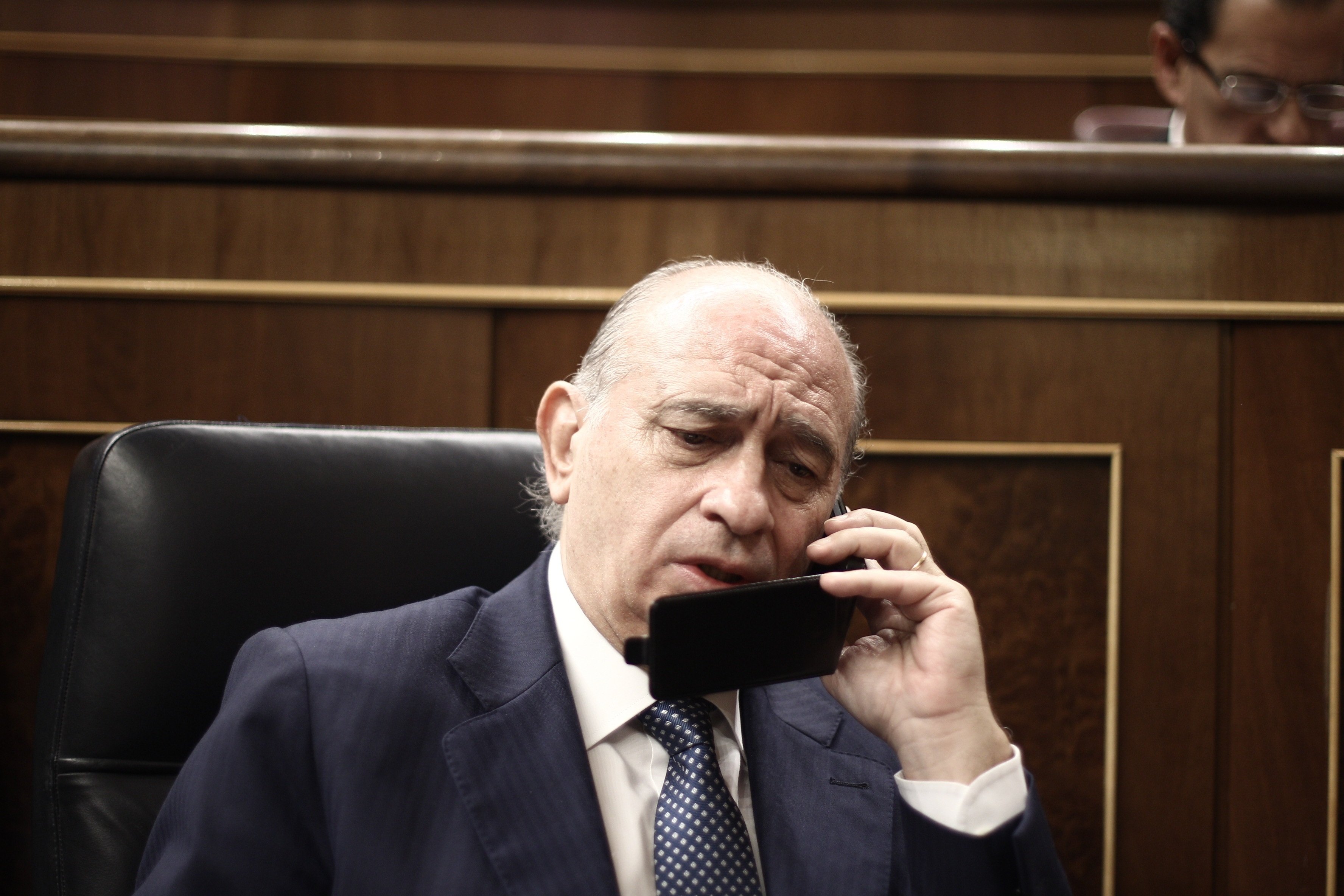Barely a week goes by in Spain at present without more news emerging about the so-called Operation Catalonia, the corrupt operation carried out from within the institutions of Spanish government aimed at discrediting the Catalan independence movement. The drip feed of revelations over the decade since the operation ostensibly began has recently turned into a flood of information incriminating figures like former Spanish police commissioner José Manuel Villarejo, and ex-People's Party politician Jorge Fenández Díaz. Precisely this latter name, the former interior minister under Mariano Rajoy, has this week been the protagonist of an exclusive published by El País, which gives powerful evidence towards a devastating conclusion: that Jorge Fernández Díaz directed Operation Catalonia. The newspaper draws this conclusion based on yet another of the long series of audio recordings covertly made by the other protagonist mentioned: "patriotic police" commissioner José Manuel Villarejo. The audio captures a meeting held at the Spanish interior ministry - then led by Fernández Díaz - in mid-December 2012, with the former commissioner. The meeting was attended by the two of them and the then-number one of the Spanish National Police, Eugenio Pino. The conversation lasts for a quarter of an hour and is part of the ex-commissioner's audio archive, and in this case is not included in any of the multiple investigations opened against him. The trio of senior figures in Spanish state powers agree to generate judicial complaints against the pro-independence leaders using testimonies made by two other individuals, Javier de la Rosa and Victora Alvarez.
"I will deny it even under torture"
In the conversation, Villarejo informs Fernández Díaz that he has spoken with several judges, such as the then dean of the National Audience criminal court, Santiago Pedraz, and that they are "totally willing" to accept the complaint against the principal targets, former Catalan president Jordi Pujol and his family. The then-minister interrupts Villarejo to remind him that the conversation they are having has not existed, and that the minister "knows nothing." At another point in the conversation Fernández Díaz states that he will deny that it has existed "even under torture". From here he asks if the case can be taken to the National Audience, to which Villarejo answers that, in his opinion, yes. Fernández Díaz then asks if the complaint could be filed on the same day, and he is also interested in whether complaints could be filed against other pro-independence leaders, such as Artur Mas, at that time president of Catalonia. He reminds the commissioners that they are facing a "matter of state" that affects "the unity of Spain."
The complaints, according to El País, were based on testimony from Javier de la Rosa, businessperson and former friend of the Pujol family, and Victoria Alvarez, former lover of Jordi Pujol's eldest son. Ex-commissioner Villarejo had managed to forge a relationship with both of these figures and obtain information from them. Villarejo's offer to them was: to remunerate them for agreeing to testify before the police in order to destroy the family of the 23-year Catalan president. Both the Spanish police leadership at the time and Fernández Díaz were aware of the shady operations of Villarejo, who explained to the interior minister the actions taken in relation to Operation Catalonia. According to the conversation recorded by the Spanish newspaper, Alvarez had reportedly told Villarejo about making trips to Andorra with large sums of cash belonging to Jordi Pujol Ferrusola, the president's son.
Los audios secretos de la corrupción | El exministro Jorge Fernández Díaz dirigió la ‘operación Cataluña’ contra Pujol. El titular de Interior, al jefe de la policía y a Villarejo: “Negaré, incluso bajo tortura, que esta reunión ha existido” https://t.co/plrRT3ydvj pic.twitter.com/pMyj3diy9D
— EL PAÍS (@el_pais) June 22, 2022
El País tweet containing extracts of the audio recording
False police reports
The evidence continues to emerge from under the rocks, or more correctly, from the remarkable collection of audio recordings made by Villarejo for his own self-protection. The newspaper also reports another action against the independence movement directed by Fernández Díaz in the framework of Operation Catalonia; in this case one month before the above conversation, that is in November 2012, in the middle of the campaign for Catalonia's snap election of November 25th, 2012, called by Artur Mas to seek a mandate to pursue an independence referendum. At that time, with the knowledge of the interior minister's chief of staff, Francisco Martínez, the patriotic police leaked an anonymous police report containing false data that incriminated members of the Catalan government, as well as Jordi Pujol, judges and prosecutors and also media directors. In the conversations recorded by Villarejo, Fernández Díaz is also heard referring to this attack on pro-independence leaders and leading figures in Catalan society.
Fernández Díaz, once again, calls on his interlocutors (Villarejo and Eugenio Pino) to exercise great caution, to avoid him from ever being implicated in the plot. In the audios, Villarejo and Pino can be heard laughing while the minister begs their discretion. During the conversation, the then minister is insistent that the complaint against the pro-independence leaders be taken to court that same day and Villarejo promises to take it up with the head of the UDEF, the specialist fraud investigation unit of the National Police. In the end, Pablo Ruz, who was then the judge of the National Audience's chamber number 5, decided to reject the allegations presented by the police based on these testimonies by Javier de la Rosa and Victoria Álvarez. The notes in Villarejo's diaries show the "disappointment" of the minister's chief of staff over the judge's decision.

